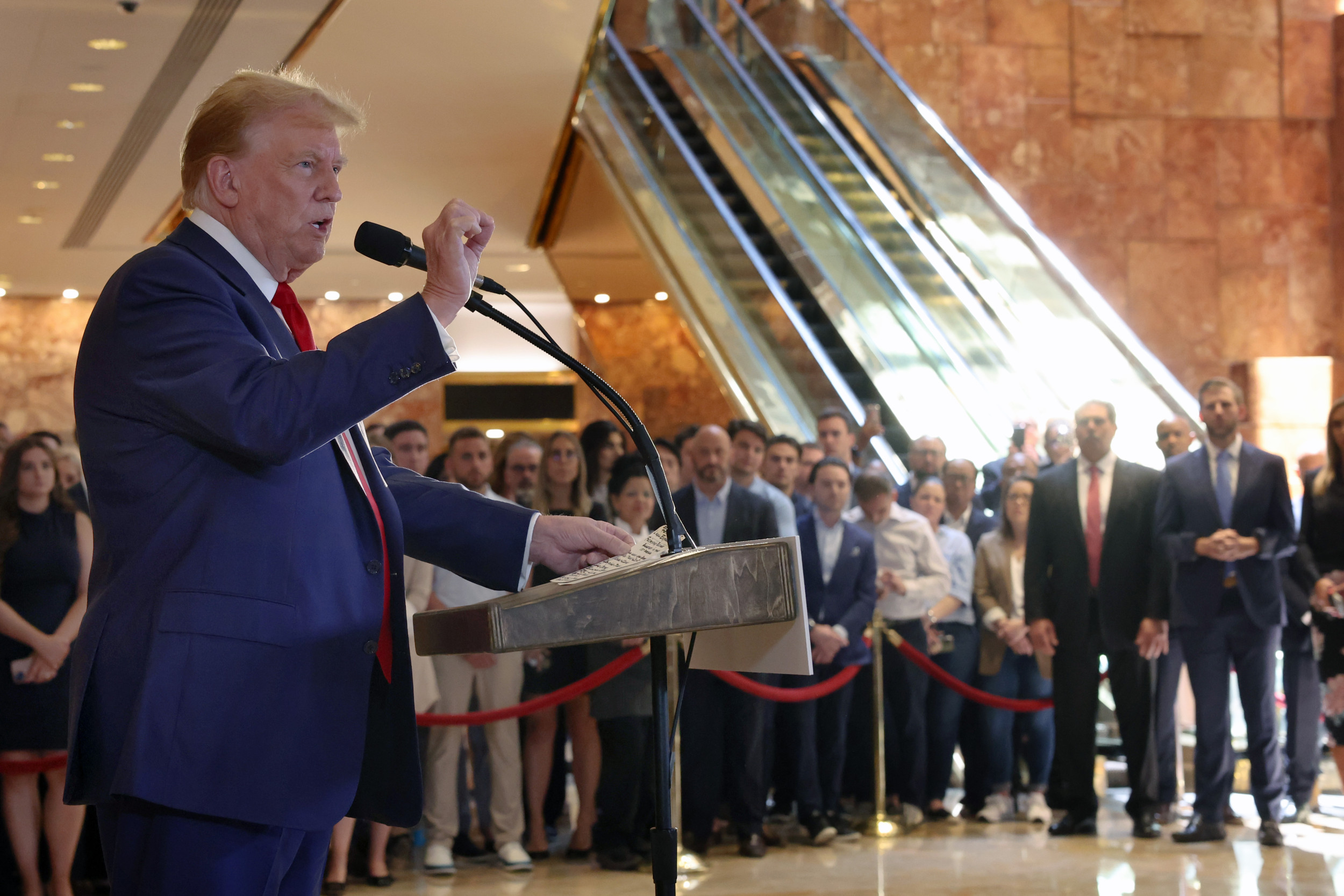After several years of trying, House Democrats finally got their hands on Donald Trump's tax returns from his time in office, allowing congressional investigators to begin looking into how the former president's business empire fared during his time in office.
Beyond questions of whether he avoided paying taxes or that he has habitually inflated his net worth, some have speculated that the tax returns could potentially bring clarity to whether Trump used his position as president to benefit him financially, noting persistent questions about his ties to foreign nationals in various business deals over the years.
However, some believe answers are likely to remain elusive, even with Trump's tax returns now in hand.
"Are we going to find out about Trump's foreign entanglements now that the Ways and Means Committee has his taxes? I think the short answer to that question is 'no,'" Steven Rosenthal, a senior fellow in the Urban-Brookings Tax Policy Center at the Urban Institute who has consulted on investigations into Trump's tax returns by outlets like the New York Times, told Newsweek.

Trump's exposure to foreign governments has long been contemplated by federal oversight committees in Congress, with many of their findings built around conjecture about the possibility of improper dealings.
The Democratic-led House Intelligence Committee once raised questions about his financial obligations to a banker with Russian ties involving some of his real estate deals, while other records recently unearthed by House investigators revealed foreign governments had spent about $750,000 at Trump's Washington, D.C. hotel during periods they were attempting to influence U.S. foreign policy, renewing scrutiny over whether he profited from foreign governments during his time in office.
Trump has maintained those relationships even after leaving office, closing a real estate deal with the government of Oman in partnership with a Saudi Arabian real estate company.
"The President of the United States, who serves as the nation's chief executive and wields enormous influence both domestically and abroad, must serve the public good—not his own personal financial interests," Carolyn Maloney, the leading Democrat on the House Oversight Committee, wrote in a letter last month describing the previously undisclosed spending at Trump's D.C. hotel.
While Rosenthal said Trump's tax returns could provide a template to avoid future potentially compromising business deals by U.S. presidents—laying down the groundwork for tighter auditing practices by the Internal Revenue Service, for example—he said they are unlikely to provide any information detailing his relationships with foreign governments.
Democratic Massachusetts Representative Richard Neal, who led the effort for Trump's tax returns, notably requested just his personal returns as well as those of eight of his associated business entities, representing just a minuscule picture of a business empire spanning hundreds of limited liability companies, according to financial disclosures Trump filed as a candidate in 2016.
Without understanding the entirety of Trump's income streams, Rosenthal said the top-line figures of his largest business entities will more than likely obscure the true source of where the money came from or when specific transactions took place, likely limiting Congress' ability to produce anything actionable.
But the scope of the request—namely, from the start of his administration until the end of it—also likely gave Trump the ability to address any appearances of a conflict before taking office, potentially making any connections impossible to tie together.
"We know from Alan Weisselberg's testimony [a former Trump attorney testifying in a New York tax fraud case against Trump] a couple of weeks ago in New York City for the prosecution that Trump started cleaning up his taxes when he took office," Rosenthal said. "By the time he took office, he had stopped with a lot of the payroll fraud stuff. I think Trump had a heightened expectation people would be looking at his later year returns."
Rosenthal added: "And so I'm a little troubled that we've gone through all this energy and effort to get tax returns that are unlikely to show much of anything, and somebody might conclude that Trump somehow had perfectly appropriate tax filings without any evidence of wrongdoing."
However, he said that congressional investigators could put its findings into a publicly available report, leaving their colleagues and members of the public to do their own inquiries into Trump's business practices, particularly given that Democrats are set to lose their House majority next month.
Uncommon Knowledge
Newsweek is committed to challenging conventional wisdom and finding connections in the search for common ground.
Newsweek is committed to challenging conventional wisdom and finding connections in the search for common ground.
About the writer
Nick Reynolds is a senior politics reporter at Newsweek. A native of Central New York, he previously worked as a ... Read more





